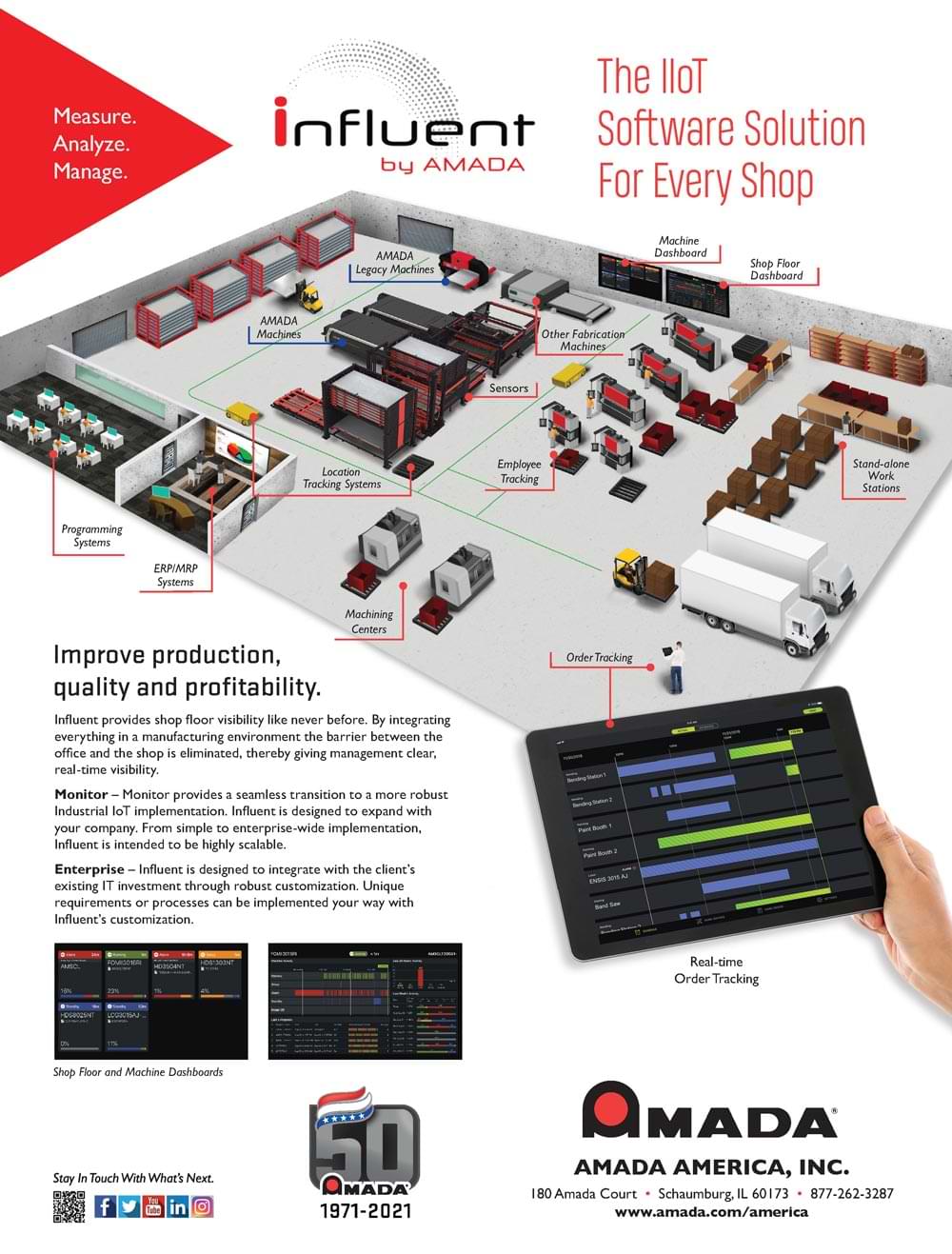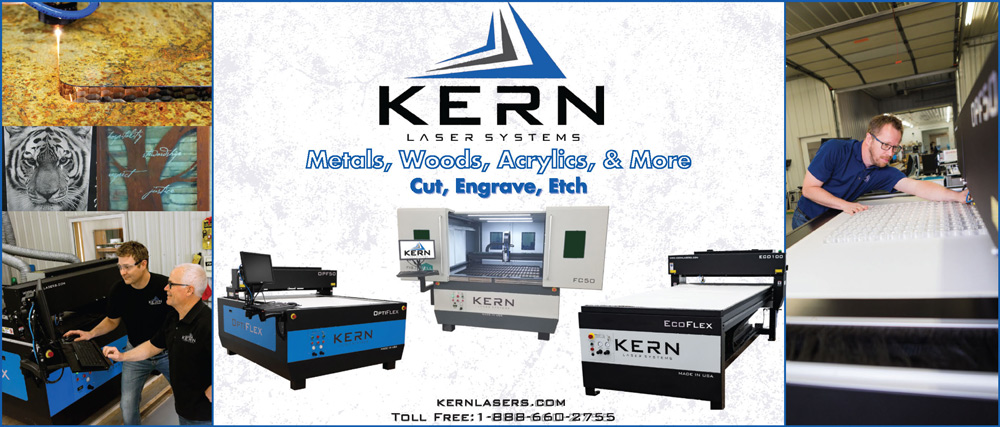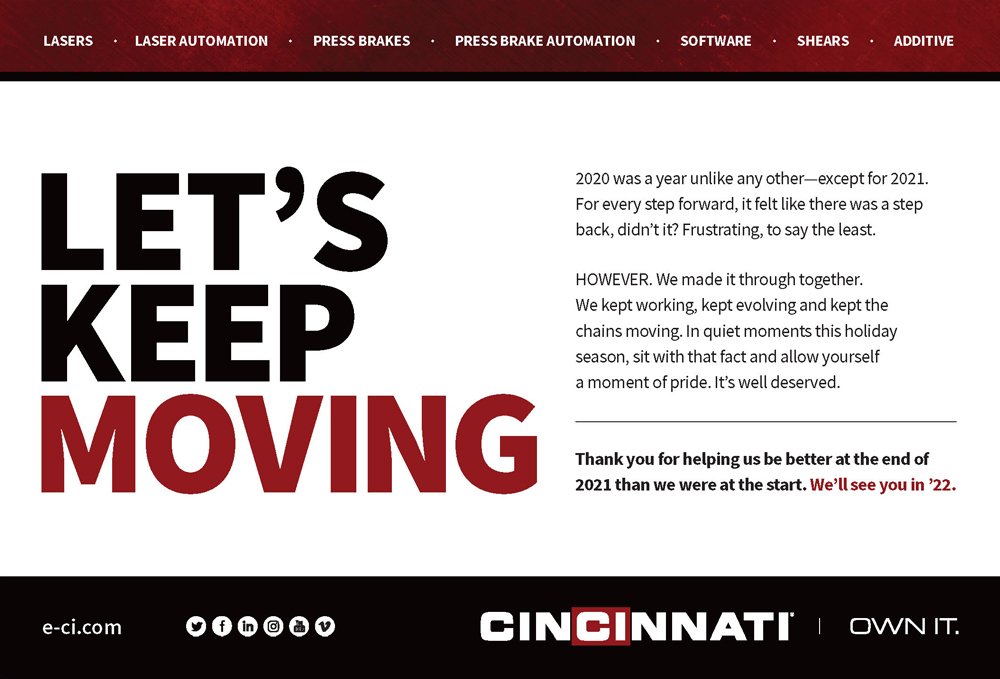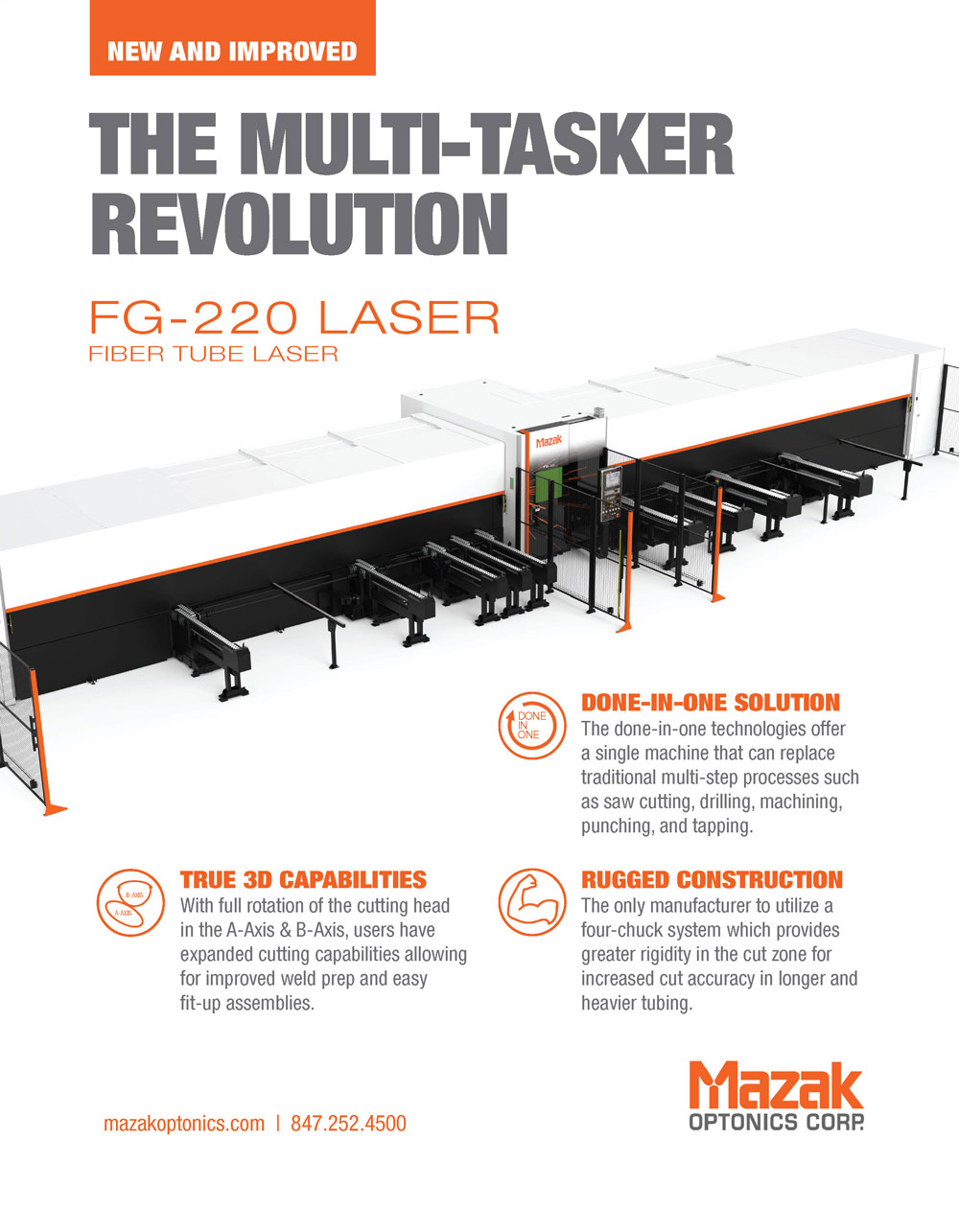MC Machinery’s Mitsubishi 10,000-watt GX-F Advanced artificial intelligence-enabled fiber laser uses less gas and energy while shouldering the work of four CO2 lasers
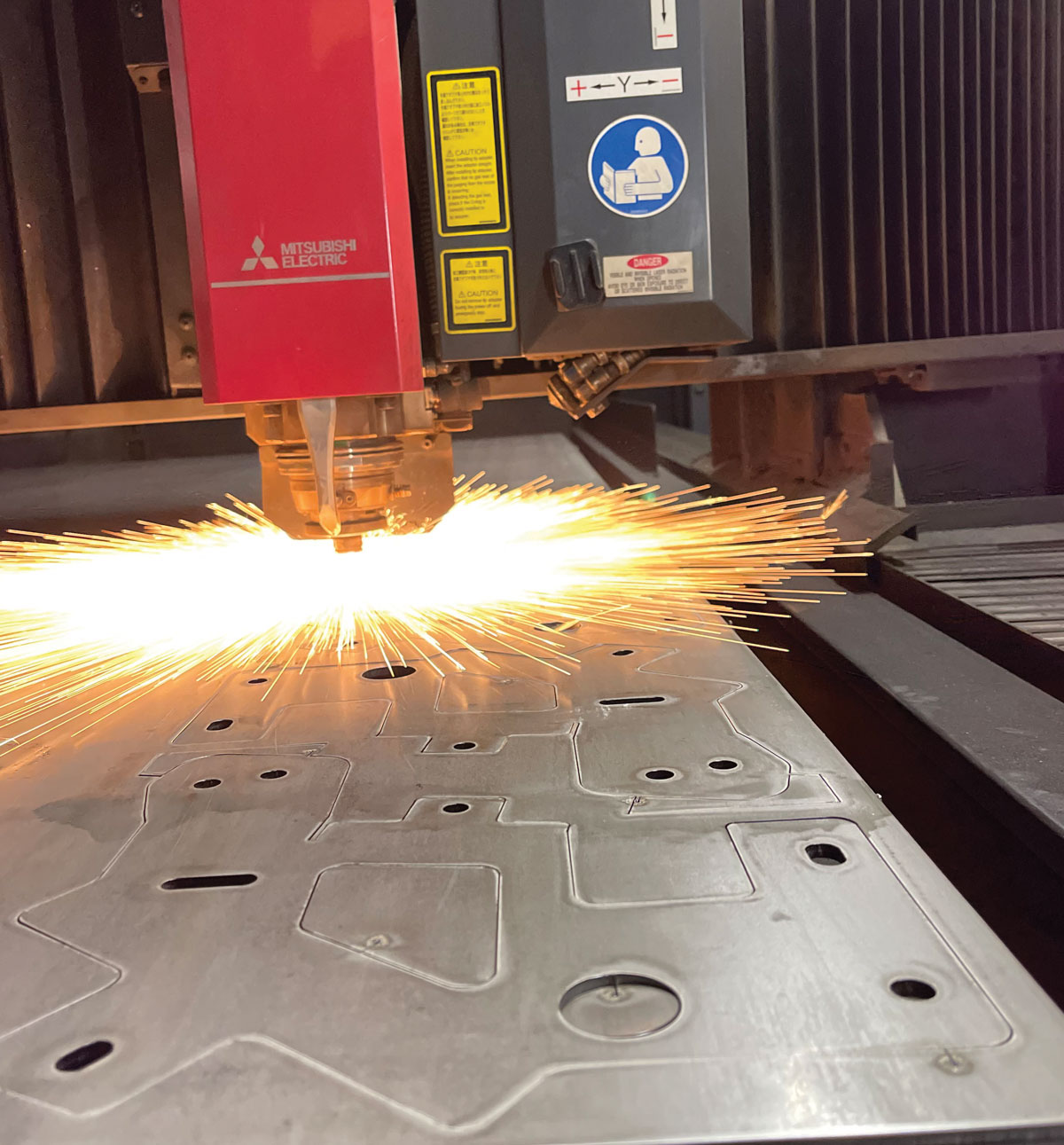
e are not a conventional fabrication shop,” says Cody Waggoner, president of Lasernut. “We do a lot of out-of-the box thinking.” The cutting specialist is a division of Industrial Process Equipment, a company started by Waggoner’s father, Jim, in 1984. IPE makes powder coating equipment and other machinery for customers across the globe.
Cody Waggoner credits his dad with his work ethic and his interest in metal fabrication. “I’ve ‘worked’ for the company ever since I was in diapers,” he laughs. “I went to work for IPE full-time as an 18-year-old high school graduate. Even though my dad owned the company, I still had to interview with the general manager. I did everything from sweep floors and clean bathrooms to learning CAD/CAM.”
The younger Waggoner also nurtured a love of rock crawling, an extreme form of off-road driving that uses specialized vehicles to scale obstacles in harsh terrain. “In 2003, my dad saved up enough money to buy an empty, 32,000-sq.-ft. building,” he says. “We were on our way to a rock crawling competition when my dad said, ‘We’re going to buy a laser.’ We bought a used 1,500-watt CO2 and had it installed in the new building where it sat idle because we didn’t know anything about G-code or how to program the CNC.”
Despite the learning curve and undeterred by the Great Recession, the Waggoners launched the Lasernut division in 2007. “I was nominated to find work, so I went door-to-door,” Cody Waggoner says. “I discovered that Southern California is a mecca for the off-road parts market.” The revelation allowed him to combine his love of rock crawling and Ultra4 racing with custom metal fabrication.
Business snowballed. In 2009, escalating orders prompted Cody Waggoner to shop for a new laser. First, “we bought a 4,000-watt Mitsubishi CO2 laser from MC Machinery,” he says. “We added a second CO2 laser from MC Machinery Systems Inc. [a subsidiary of Mitsubishi] in 2010. We looked at other laser-cutting houses and considered purchasing from one of them, but we ultimately chose to stick with Mitsubishi for several reasons. MC Machinery stands behind its products. And they design and produce all their components in-house. We found that other laser suppliers outsource components from multiple sources. Their financing package was also very attractive.”
By 2015, Lasernut had five Mitsubishi CO2 lasers—another 1,500-watt, two 4,000-watt and two 4,500 watt models. Today, Lasernut occupies 40,000 sq. ft. of manufacturing space. Its services range from prototypes and pre-production evaluations to revisions and final product development. The production team also bends, welds, grinds, sands, drills, taps, counter-sinks, tumbles and shears parts.
When other fab shops adopted fiber laser technology, Lasernut chose to maintain its stable of CO2 lasers. “Fiber added micro burr to our parts, which required a secondary finishing process,” Waggoner explains. “We didn’t want to do that.”
In addition to serving the off-road parts market, Lasernut also makes parts for its own Ultra4 racing and rock crawling vehicles.
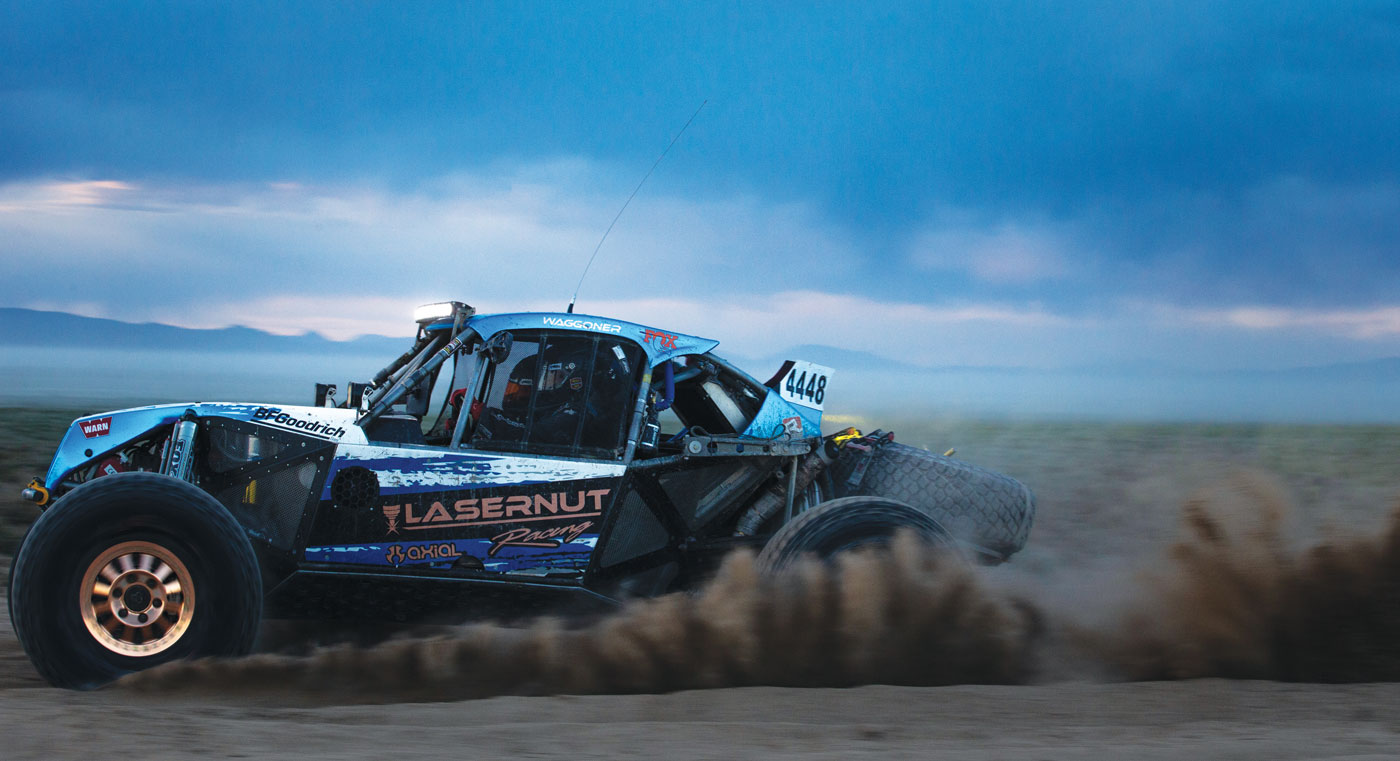
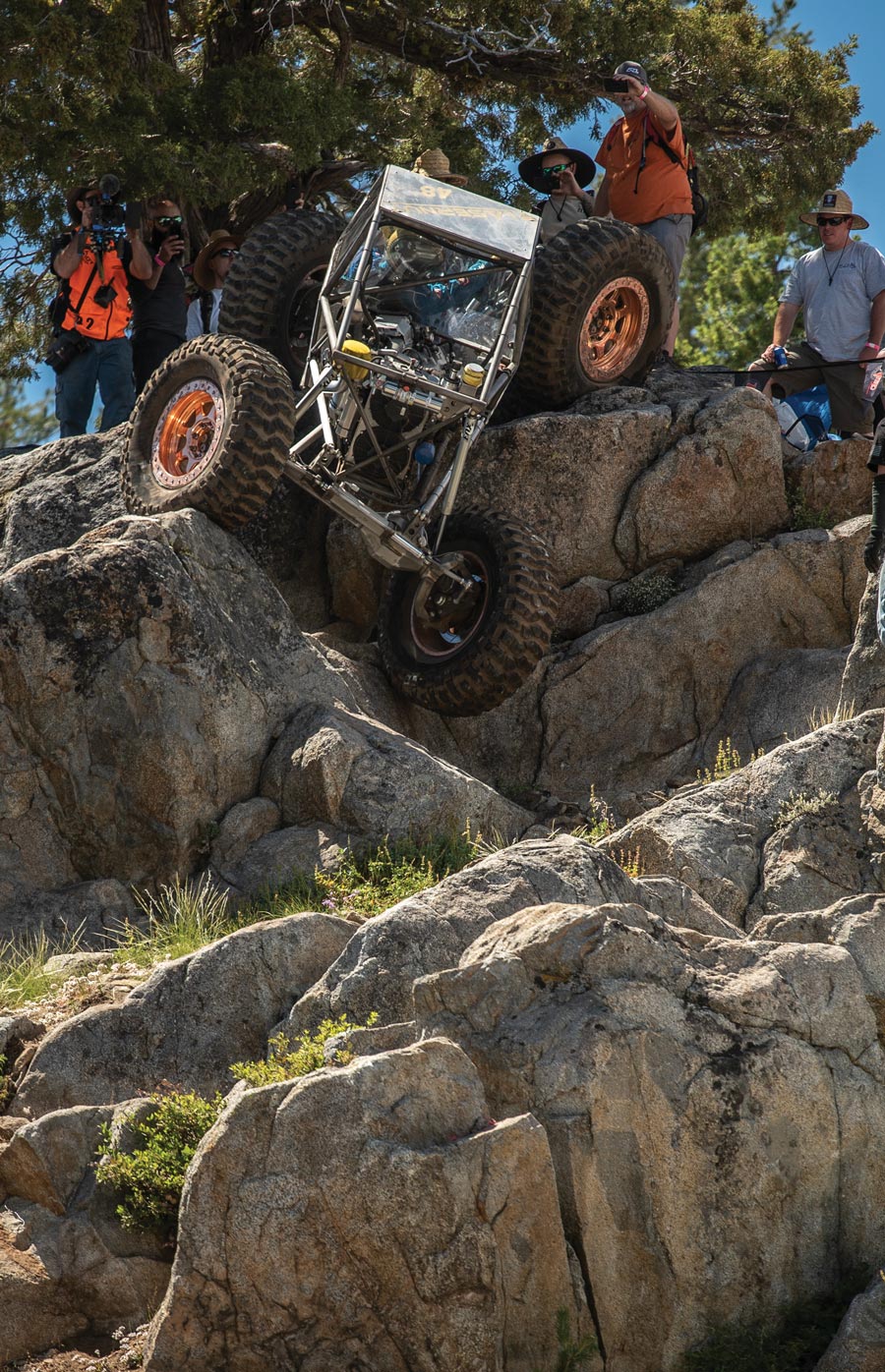
When MC Machinery introduced its new Mitsubishi GX-F Advanced artificial intelligence-enabled fiber laser to the North American market in March 2021, the machine’s performance caught Waggoner’s attention. “We watched a demonstration and were surprised to see that there was minimal micro burr,” he says.
“We developed a new oscillator in house for the GX-F and observed an immediate improvement in edge finishing,” says Shane Herendeen, North American sales manager for MC Machinery. “The solid-state design doesn’t use optical components and it is sealed from outside air. Clean beam and anti-reflection technology improve reliability, and enhance performance and processing capabilities such as real-time process monitoring, including burr detection/adjustment. These steps have taken laser finishing to the next level.”
 When our workload tripled, the GX-F helped us normalize lead times.
When our workload tripled, the GX-F helped us normalize lead times. 
Lasernut installed a 10,000-watt GX-F Advanced artificial intelligence-enabled fiber laser in June and runs the machine 24/7. “We couldn’t keep up with demand even with five CO2 lasers,” says Waggoner. “We couldn’t cut fast enough. When we installed the GX-F, it replaced the old 1,500-watt CO2 laser and we are not running three of our other CO2 lasers.” He says The GX-F Advanced uses less gas and electricity and is shouldering the workload of four CO2s. “I was able to make my fiber laser payment with the money we are saving in electrical costs. And we have beam on-time of 18 to 20 hours a day without automation.”
According to Herendeen, “Lasernut’s operator’s removes the entire nest of parts from the GXF and de-nests it while a new sheet is loaded. So the fiber laser is never starving” for material.
Lasernut cuts 4-ft. by 10-ft. flat sheets but can also cut 5-ft. by 10-ft. sheets, thereby increasing production by 25 percent. “The fiber laser cuts three times faster than our CO2s. Even when we use the larger sheet metal, the fiber is working faster,” says Waggoner.
Mitsubishi’s proprietary artificial neural network technology, Maisart, imitates neurons in the human brain. Audio and light sensors monitor the cutting process in real time and automatically adjust parameters to optimize cutting performance. Part quality is critical for Lasernut. “The off-road market is a small, tight-knit community,” Waggoner says. “Your reputation precedes you.”
Lasernut operators are able to remove the entire nest of parts from the GX-F fiber laser and sort it while a new sheet is loaded for processing.
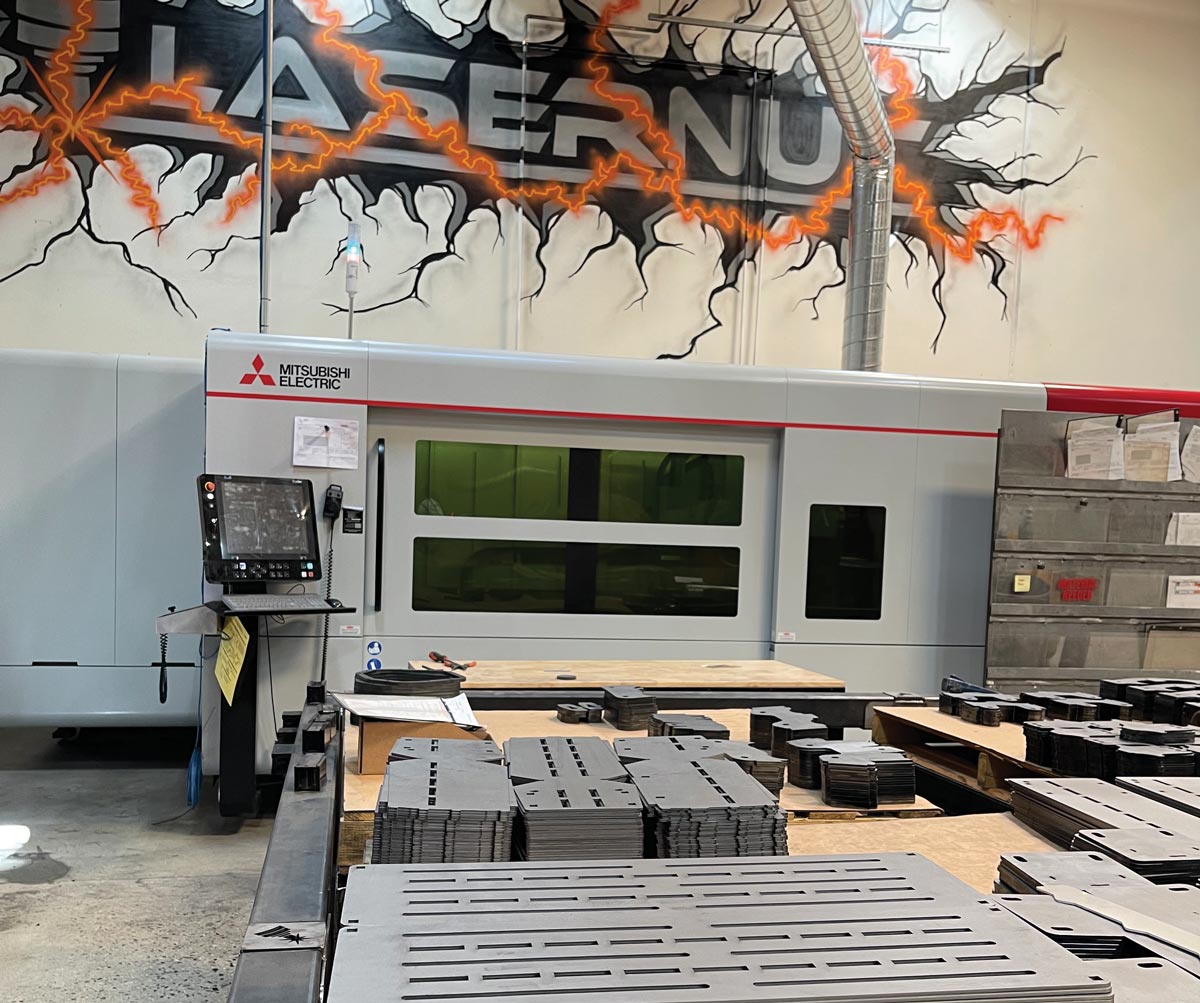
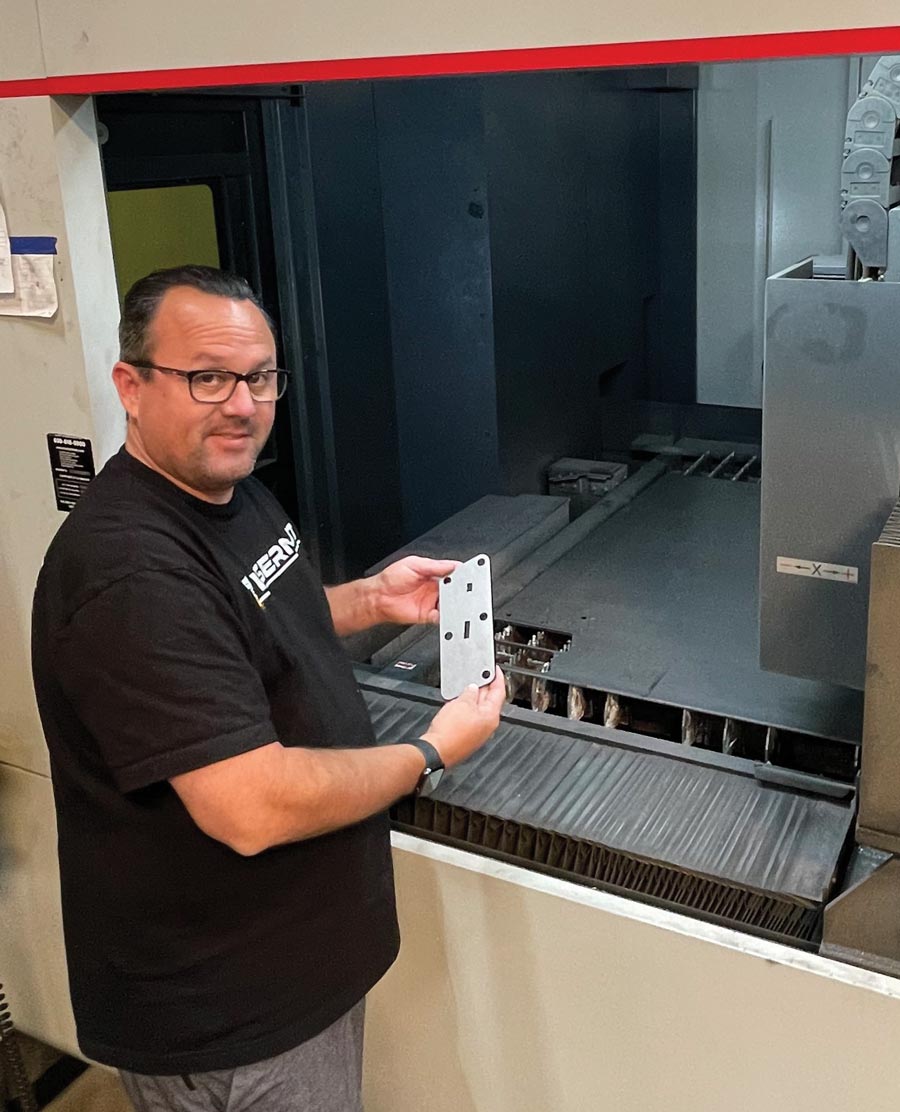
The machinery builder’s Advanced Burr Reduction (ABR) technology also contributes to cut quality. “ABR blends oxygen and nitrogen to help reduce nitrogen consumption and provide the operator with a greater margin for error on difficult-to-cut materials,” says Herendeen. “In addition, with our advanced gas reduction technology, the GX-F delivers more power while using up to 77 percent less nitrogen.”
“Our claim to fame is our fast lead times,” says Waggoner. “When our workload tripled, we needed a way to dig out of our backlog. The GX-F helped us normalize our lead times.”
“Maintenance on the fiber is minimal,” he continues. “You aren’t replacing 10 mirrors every three to five months. In 2020, service for five CO2 lasers totaled $200,000. With the fiber laser, you don’t have any of that. It’s a win-win.”
Aftermarket vehicle parts comprise 80 percent of Lasernut’s workload. To keep pace, the company continues to look at equipment that can help it to get the job done. In 2020 and 2021, Lasernut added five Mitsubishi electric press brakes. While the GX-F fiber laser’s AI-assisted cutting capability helps to bridge the gap left by current labor shortages, the metal fabricator’s unconventional approach also extends to its employees.
“Typically a job shop can be a dirty place to work,” says Waggoner. “We wanted to develop a different kind of work culture that included a light-filled, clean environment. And we don’t just look for the typical skill sets in prospective personnel. We look for a strong work ethic, a good attitude and someone who is on time. We can teach people how to run equipment.”
